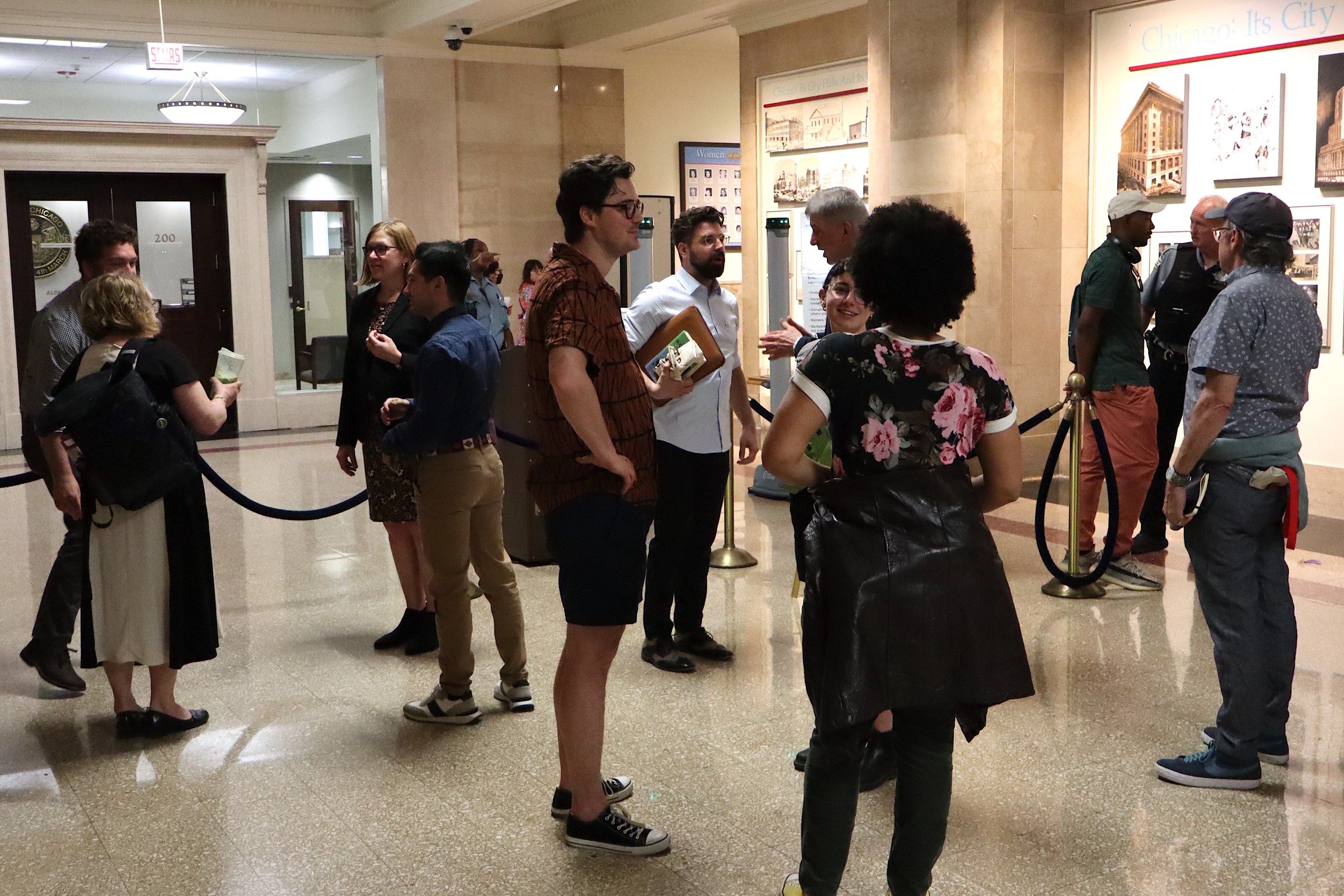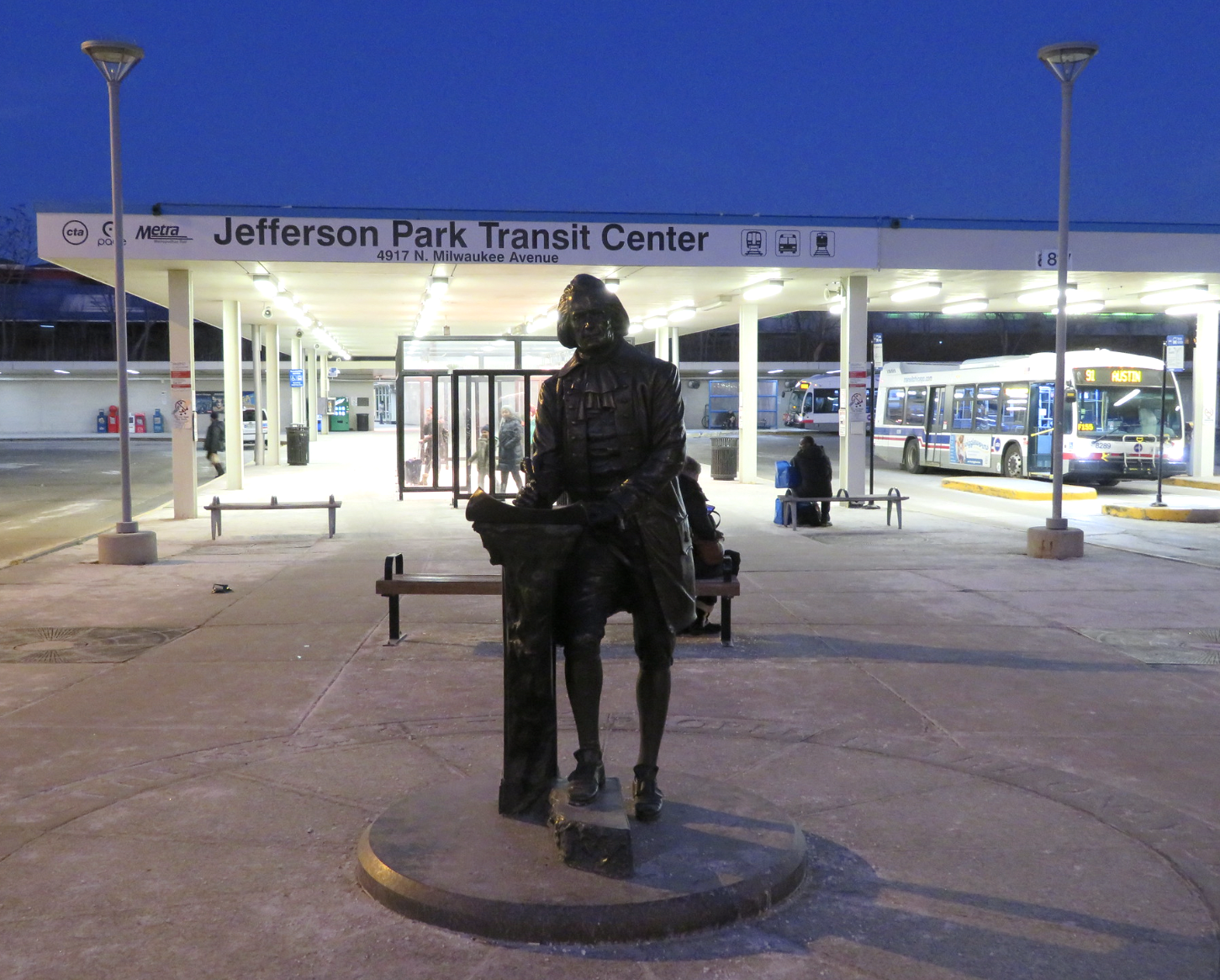The long-awaited Illinois capital bill proposal that Governor J.B. Pritzker released morning includes an impressive $41.5 billion investment in transportation, infrastructure, and other priorities, but a relative pittance would go towards public transportation, far less than advocates had hoped for.
The state hasn't had a capital bill since 2009, when the Illinois Legislature passed the $31 billion Illinois Jobs Now! bill in the midst of the recession, and crumbling infrastructure and underfunded transit have become increasingly pressing issues in recent years. According to a report by the Sun-Times' Tina Sfondeles, the new plan, dubbed "Rebuild Illinois" would be paid for through a variety of proposed taxes and fees.
Raising the Illinois gas tax, which has been stuck at 19 cents since 1990, by another 19 cents, is projected to raise $560 million annually. A hike in the state vehicle registration fee would raise another estimated $490 million a year. Electric vehicle registration fees, currently $34 every other year, would be raised to $250 a year, generating a projected $4 million annually.
Ride-hailing, which is currently not taxed at the state level, would see a new $1 per ride fee, estimated to raise $214 million a year. Parking garages are also not currently taxed by Illinois, and the plan would introduce a 6 percent tax on daily and hourly garage parking, with a 9 percent tax on monthly garage parking, raising a projected $60 million annually. All of the above vehicle and ride-hailing taxes are sensible ways to to raise money for infrastructure and transportation and/or reduce vehicle miles traveled, since car-based travel has many societal costs, including crashes, congestion, pollution, and wear-and-tear on roads, to name a few.
Additional funding for the capital bill would come from raising the real-estate transfer tax on non-residential transactions; raising the liquor gallonage tax; introducing a state tax on cable, satellite, and streaming services; capping tax exemptions for traded-in property; and reallocating state revenue from video gambling machines to the capital budget. It's unlikely that all of the proposed taxes and fees will wind up in the final bill.
While the proposal includes $28.6 billion for transportation, only $3.4 billion would go for transit. That's only 11.88 percent of the funding. The Active Transportation Alliance had been advocating for earmarking 40 percent of state transportation funding for transit, as well as $50 million annually for walking and biking infrastructure, which isn't included in Pritzker's plan at all. And, as Tribune transportation reporter Mary Wisniewski noted, Metra alone was hoping for $5 billion.
In contrast to the meager transit funding, existing roads and bridges would get almost $11 billion, while new roads and bridges would get over $12 million.
Both Active Trans and the Metropolitan Planning Council declined to comment on the capital plan this afternoon, citing the need to study it more thoroughly. But transit analyst Yonah Freemark didn't pull any punches in tweeting his disgust with a plan to spend $23 billion on roads and bridges and only only about a seventh of that on transit, calling it "a disaster from the perspective of social equity and the environment."
Freemark noted that Chicago hasn't expanded its rail system since 1993, when the Orange Line to Midway Airport was completed, and the city has had to cut bus service. He called Metra's increasingly unreliable service "a joke." And he noted that, in light of this, it's beyond misguided that the state is planning to spend a huge amount of money on roads to serve its shrinking rural population.
Freemark added that fighting this unjust capital proposal must be a top priority for incoming Chicago mayor Lori Lightfoot, who takes office on Monday. "She must oppose this capital proposal will all her might. It is designed to siphon money away from cities, spew pollution, spread sprawl, increase inequality, and further punish transit users."
Check out the capital bill proposal here.




